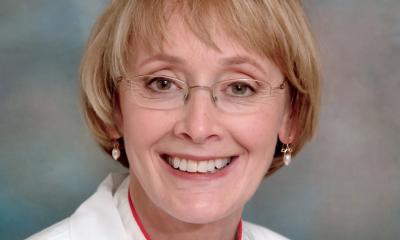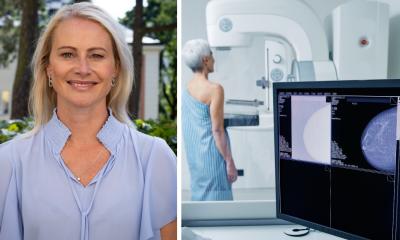Controversies in breast imaging
Breast cancer screening for women between 40 and 49 years – yes or no? This is one of the most controversial issues as this year’s European Congress of Radiology (ECR) in Vienna. For Professor Dr Andy Evans of the Centre for Oncology & Molecular Medicine at the University of Dundee the answer is clear: “Yes. There is good evidence that breast cancer screening for women in their 40s is useful.”

The expert refers to several studies that indeed seem to show that breast cancer mortality decreased among women who underwent annual breast cancer screening between 40 and 49 years of age. Evans is participating in one of these studies: “Age Trail” is a current project in Britain looking at the effectiveness of annual breast cancer screening in this age bracket. While initial results published in “Lancet” do indicate a reduction in mortality, the figures are statistically not relevant, as the Lancet editors conceded.
Matthew G. Wallis, MB, ChB, FRCR, radiologist at the Cambridge Breast Unit and the NIHR Cambridge Biomedical Research Centre, agrees that breast cancer screening reduces mortality however he is concerned about the high number of false positive findings. “Cancer is detected in three of 1000 women examined. But in about 100 women a suspicious lesion is detected which requires further investigation”, Wallis points out. This, he underlines, is not only enormously expensive but above all significantly impairs the quality of life of the women concerned. Moreover, Wallis adds, with regard to tumours that are detected early no distinction is made between fast growing and aggressive or slow growing and less aggressive ones.
Many radiologists therefore look for magnetic resonance imaging (MRI) to provide a conclusive answer since this modality shows the breast in much more detail than conventional mammography. Dr Laura Martincich of the Istituto per la Ricerca e la Cura del Cancro (Institute for Cancer Research and Treatment) in Candiolo, Italy, is confident that MRI will significantly reduce the number of false positives in breast cancer screening: “When we use all information contained in an MR data set, the specificity of MR mammography can be greatly improved.”
By Michael Krassnitzer
04.03.2012





